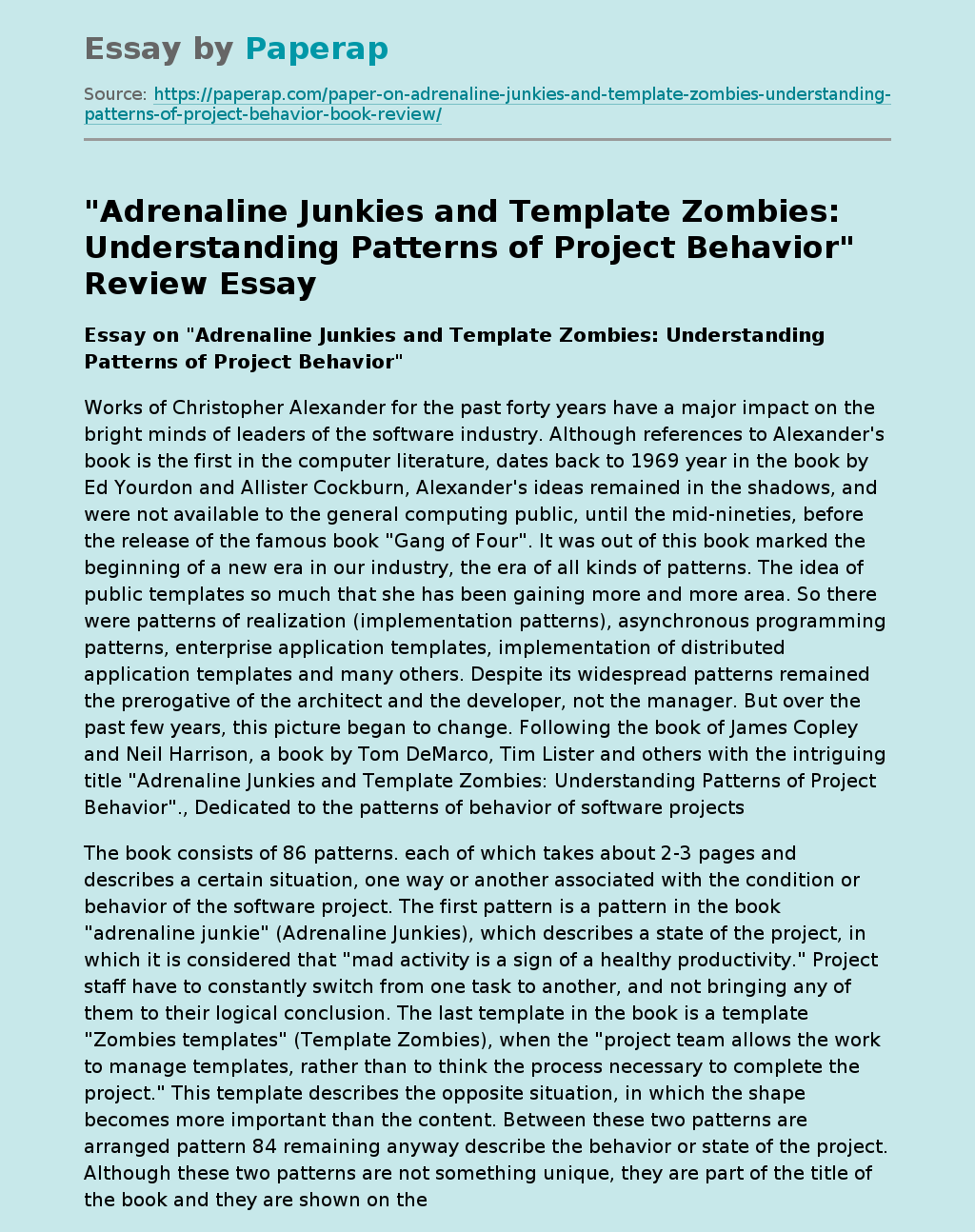Project Behavior Patterns: Adrenaline Junkies vs Template Zombies
Works of Christopher Alexander for the past forty years have a major impact on the bright minds of leaders of the software industry. Although references to Alexander’s book is the first in the computer literature, dates back to 1969 year in the book by Ed Yourdon and Allister Cockburn, Alexander’s ideas remained in the shadows, and were not available to the general computing public, until the mid-nineties, before the release of the famous book “Gang of Four”. It was out of this book marked the beginning of a new era in our industry, the era of all kinds of patterns.
The idea of public templates so much that she has been gaining more and more area. So there were patterns of realization (implementation patterns), asynchronous programming patterns, enterprise application templates, implementation of distributed application templates and many others. Despite its widespread patterns remained the prerogative of the architect and the developer, not the manager. But over the past few years, this picture began to change.
Following the book of James Copley and Neil Harrison, a book by Tom DeMarco, Tim Lister and others with the intriguing title “Adrenaline Junkies and Template Zombies: Understanding Patterns of Project Behavior”., Dedicated to the patterns of behavior of software projects
The book consists of 86 patterns. each of which takes about 2-3 pages and describes a certain situation, one way or another associated with the condition or behavior of the software project. The first pattern is a pattern in the book “adrenaline junkie” (Adrenaline Junkies), which describes a state of the project, in which it is considered that “mad activity is a sign of a healthy productivity.
” Project staff have to constantly switch from one task to another, and not bringing any of them to their logical conclusion. The last template in the book is a template “Zombies templates” (Template Zombies), when the “project team allows the work to manage templates, rather than to think the process necessary to complete the project.” This template describes the opposite situation, in which the shape becomes more important than the content. Between these two patterns are arranged pattern 84 remaining anyway describe the behavior or state of the project. Although these two patterns are not something unique, they are part of the title of the book and they are shown on the cover of the book in the form of comic men.
«Most of the participants of the project quite well versed in pattern recognition and have an internal intuition ( “I feel that this project will be a trouble”), but not so well versed in the compilation of patterns in a more convenient form. This book is about. We, the six authors have collected all his experience for the presentation templates that we have learned over the common one hundred and fifty years of experience. »
With the release of this book, each participant an opportunity to describe the state of the project the behavior of using the” language templates “, just a few words exactly making it clear to his companion, the condition of the project and its team. And who knows, maybe in a few years, books will be plenty of fans, and it will be called nothing but a “gang of six».
Project Behavior Patterns: Adrenaline Junkies vs Template Zombies. (2019, Oct 01). Retrieved from https://paperap.com/paper-on-adrenaline-junkies-and-template-zombies-understanding-patterns-of-project-behavior-book-review/

